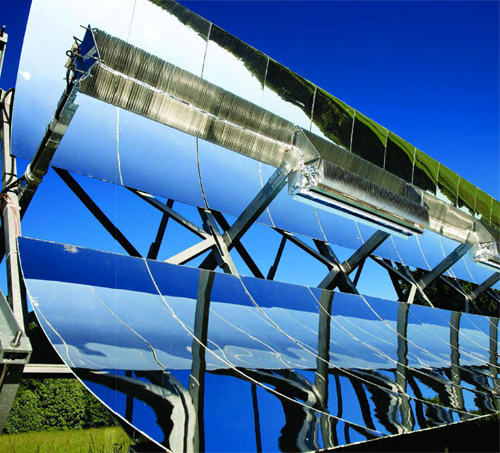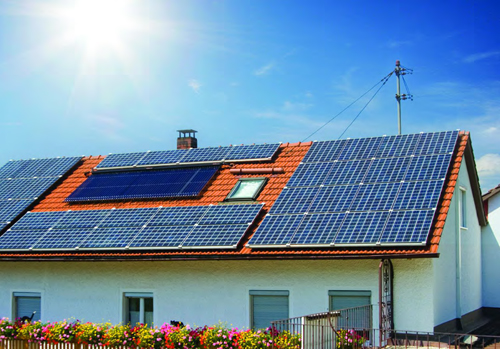Solar Power
Solar power is a good alternative energy. Solar power plants produce electricity with the Sun's heat. The power plants collect sunlight with the help of big reflective mirrors. The mirrors direct sunlight to a fluid, which gets very hot. The hot fluid heats water and produces steam without producing carbon dioxide. Then, as in conventional power plants, the steam spins a turbine, which powers a generator.
Solar thermal power plants are giant collectors of heat. We can use the same basic concept at home, only smaller, with a solar water heater. Solar water heaters have collection boxes that absorb the Sun's heat. They transfer that heat to water in a storage tank. Solar hot water systems help the environment by reducing the need to burn fossil fuels.

Fuel for Thought
The next time you make tea, don't use the stove to heat water. Instead, place tea bags in a glass jar filled with fresh water. Then, set the jar in direct sunlight and let solar thermal energy do the work.
We use solar cells, called photovoltaic cells (PV cells) to produce electricity directly from sunlight. Special materials make up the cells. When sunlight hits the cells, it creates an electric current. PV power plants collect the electricity and send it through power lines, supplying homes and businesses with clean solar power. We can reduce the amount of air pollution we cause if we use more solar energy and less fossil fuel energy.

Fuel for Thought
Can individuals use solar cells? Yes! Some people install solar panels on their house. You can even buy calculators, watches, and many other products that run on solar power.